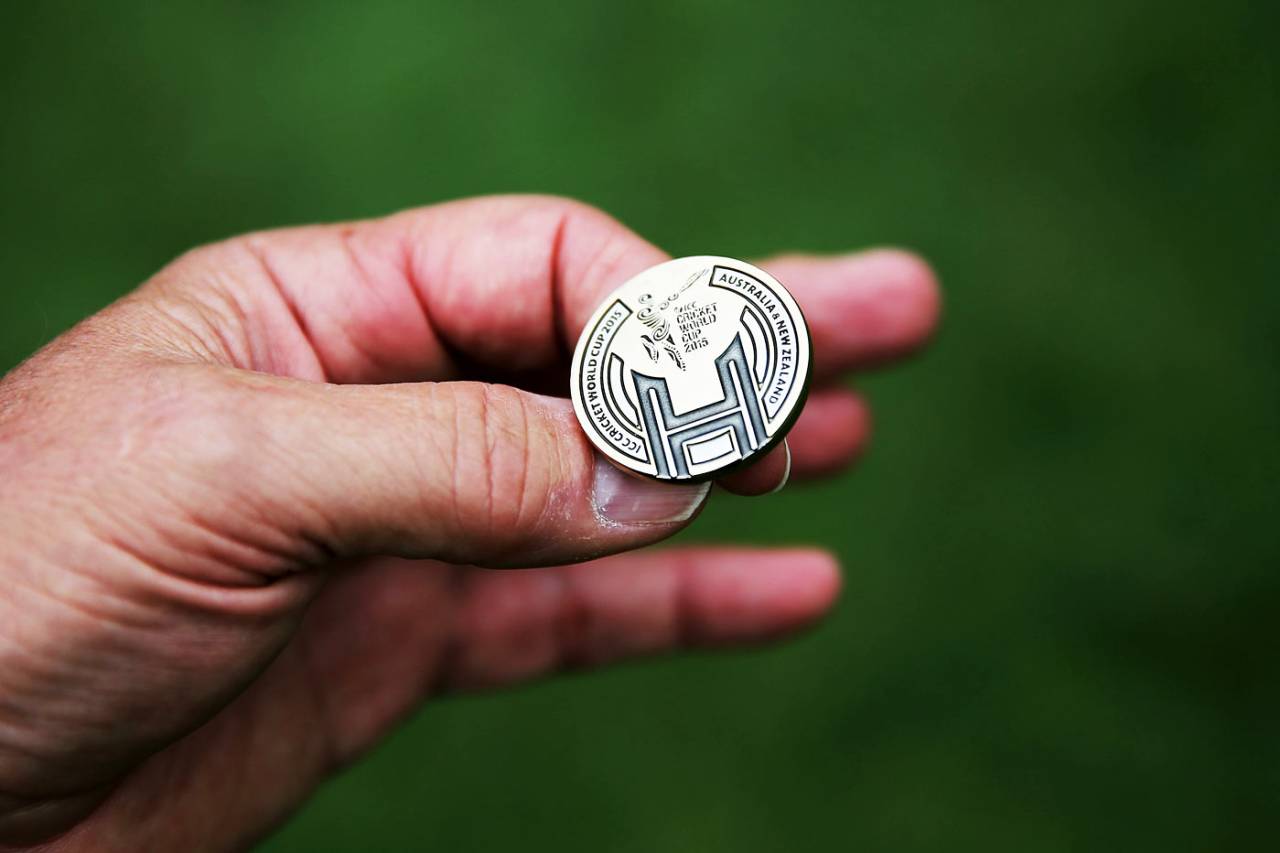The Extra Over: making the day-nighter fairer
An "extra over" as an offsetting factor to the decision of choosing to bat or field... could this nullify the impact the toss has in day-night ODIs?
Ravi Abhyankar
29-Oct-2015

Pure luck should not decide the fate a game • ICC
A mother has two squabbling young sons and a fresh, tasty chocolate cake that she needs to divide equally between them. The clever mother asks one son to cut it in two parts, and the other one to choose either part. This ensures neither son has any cause for complaint. (Academicians call this fair method 'divide-and-choose' and describe it as 'envy-free'.) This cake-dividing principle forms the basis of this proposal for improvement of the cricket toss rules.
Cricket is a singular game susceptible to weather, pitches, grass, condition of the ball, dew, light, and rollers. Any sport should test the skills of the competing teams. But a cricket match starts with the tossing of a coin that sometimes allows pure luck to overshadow skill. In the last few years, concerns have particularly grown about day-night matches, where the team winning the toss improves its probability of winning the match. If we accept that the conditions of the two innings are different (natural v artificial light, weather, dew), it is patently unfair that one team has the right to choose (based on pure luck) what it feels are the better conditions, while the other team can merely curse the coin. In the 2011 Natwest series against India, England's captain Alastair Cook won five tosses in a row - India didn't win any of the five matches (England 3-0, one tied, one abandoned). This is similar to Federer being allowed to serve five games in a row. I don't think Nadal or Djokovic facing him would be very happy about that.
- The proposal: Using the cake-dividing principle, my proposal is to offer an "extra over" as an offsetting factor to the decision of choosing to bat or field. The captain winning the toss can opt to (a) choose to decide whether to bat or field first, or (b) get an extra over. The other captain takes what remains. For further clarification, if MS Dhoni wins the toss, he may opt to bat or field first, in which case AB de Villiers gets an extra over for South Africa. Alternatively, Dhoni can opt for the extra over (51 instead of 50), leaving de Villiers to decide whether South Africa will bat or field first. This way, at the time of the toss, not one but both sides receive some benefit.
Want to be featured on 'Inbox'? Send your articles to us here, with "Inbox" in the subject line.